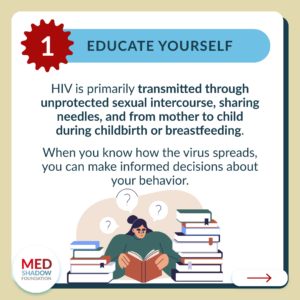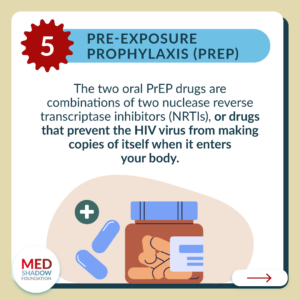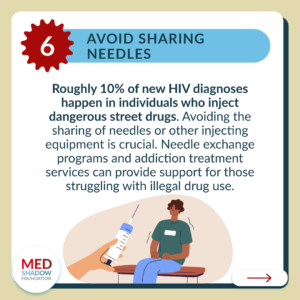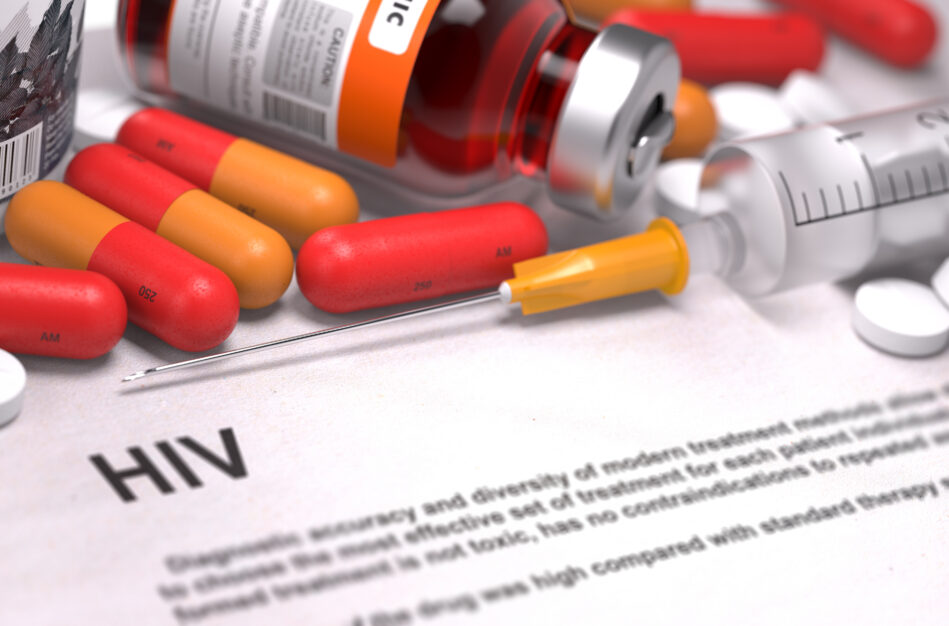Human immunodeficiency virus (HIV) remains a significant global health concern, but with the proper knowledge and precautions, you can lower your risk of contracting the virus and protect yourself from HIV.
HIV is a viral infection that attacks the immune system, specifically T cells that fight infections alongside the immune system. When left untreated, HIV can lead to acquired immunodeficiency syndrome (AIDS). In this condition, the immune system is severely damaged, making individuals susceptible to opportunistic infections and certain cancers.
Infectious diseases, including HIV, rank as the third leading cause of death in the U.S. Despite significant medical advancements, the impact of infectious diseases remains substantial due to factors like antibiotic resistance, emerging pathogens and ongoing challenges in public health infrastructure.
HIV is more prevalent in developing countries, particularly those in Sub-Saharan Africa, where approximately 20% of individuals in the region are infected by the virus. While two-thirds of all HIV diagnoses occur in African countries, according to the most recent study, 1.2 million Americans are living with the virus.
Here are seven ways to protect yourself from contracting HIV.
Educate Yourself
Knowledge is a powerful tool in the fight against HIV. Understanding how the virus is transmitted is crucial for prevention. HIV is primarily transmitted through unprotected sexual intercourse, sharing needles and from mother to child during childbirth or breastfeeding. When you know how the virus spreads, you can make informed decisions about your behavior.

Practice Safe Sex
Regular and correct use of condoms during sexual activity is one of the most effective ways to prevent HIV transmission. Condoms act as a barrier, preventing the exchange of bodily fluids that may contain the virus. It’s essential to use condoms consistently and properly.
Communicate With Sexual Partners
Knowing your partner’s HIV status is important and open communication about sexual health is key. Reducing your number of sexual partners can lower your risk of contracting HIV. Mutual monogamy, where both partners are faithful to each other, can be a protective measure when both individuals have been tested and confirmed to be HIV-negative.
Get Tested
Regular HIV testing is crucial for individuals to be aware of their HIV status. You should get tested at least once a year if you’re sexually active or are sharing needles. Knowing your status is vital for your personal health and for your partner’s health.
Many health care providers offer confidential testing services and some communities even provide free testing. Early detection allows for timely medical intervention and the adoption of preventive measures.

Pre-Exposure Prophylaxis (PrEP)
PrEP is a medication you can take if you’re at high risk of contracting the virus. When you take it consistently, PrEP can drastically reduce your risk of HIV infection. It’s essential to consult a health care professional to determine if this is a suitable option and to ensure you use it appropriately. Read more about PrEP and its side effects here.
Avoid Sharing Needles
Intravenous drug use is a significant risk factor for HIV transmission. Roughly 10% of new HIV diagnoses happen in individuals who inject drugs. Avoiding sharing needles or other injecting equipment is crucial. Needle exchange programs and addiction treatment services can provide support for those struggling with drug use.
Prevent Mother-to-Child Transmission
Pregnant women living with HIV can take antiretroviral medications to prevent transmitting the virus to their babies. Seeking prenatal care and adhering to medical advice can significantly reduce the risk of mother-to-child transmission during childbirth and breastfeeding.

Make Healthy Choices to Protect Yourself from HIV
When you understand how HIV is transmitted and adopt preventive measures, such as safe sex practices, regular testing, and using PrEP when appropriate, you can significantly reduce your risk of contracting and spreading HIV.






